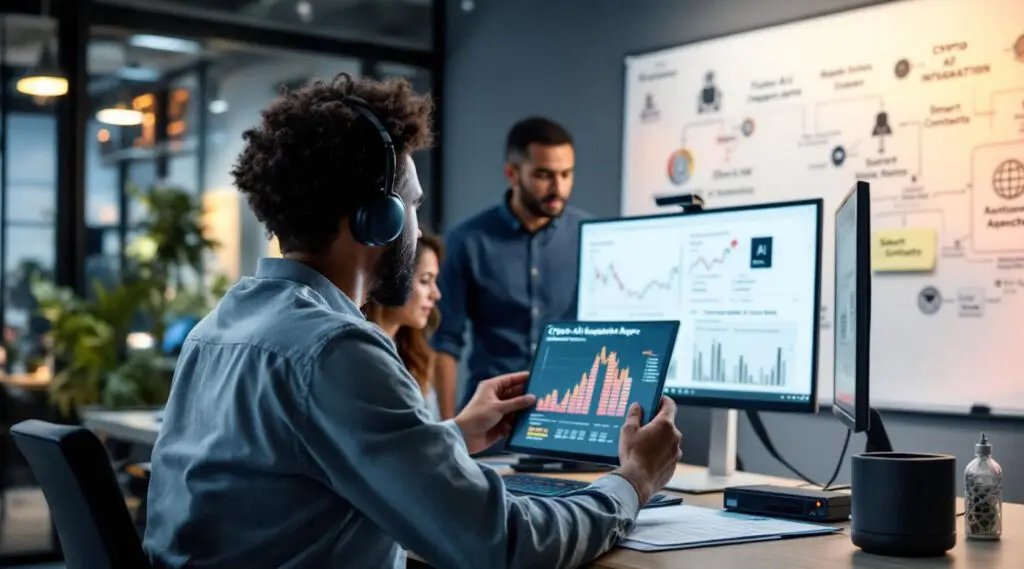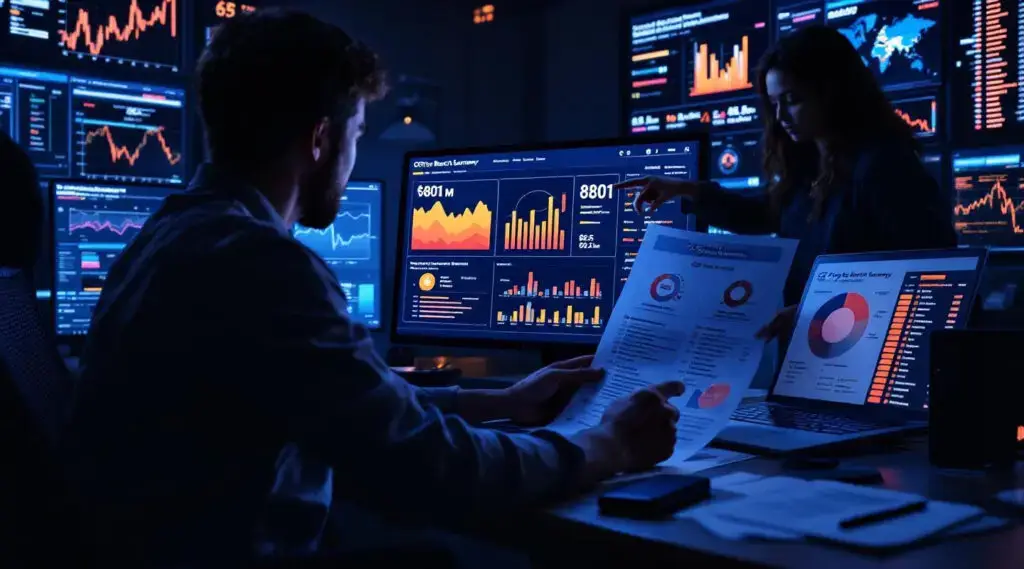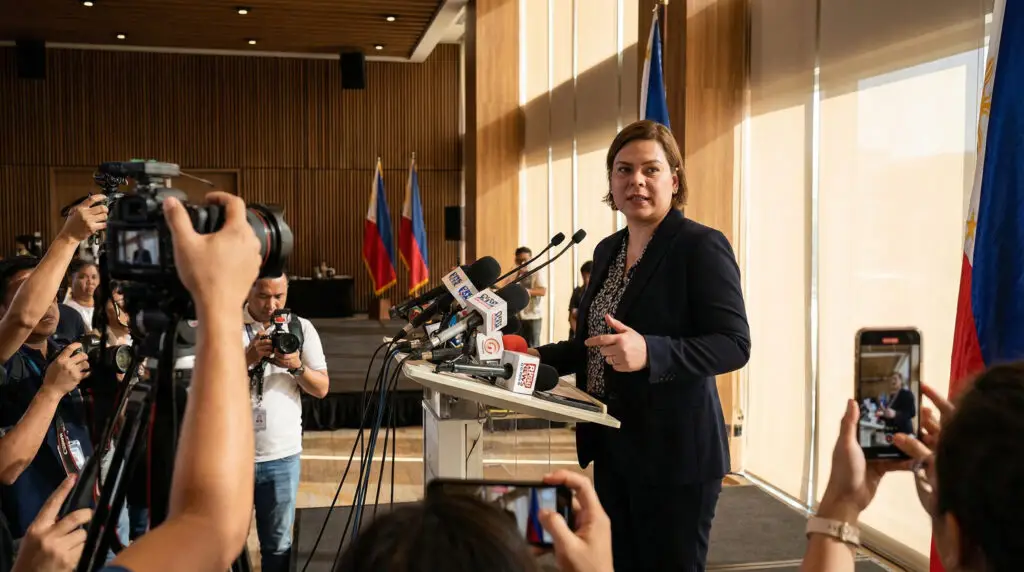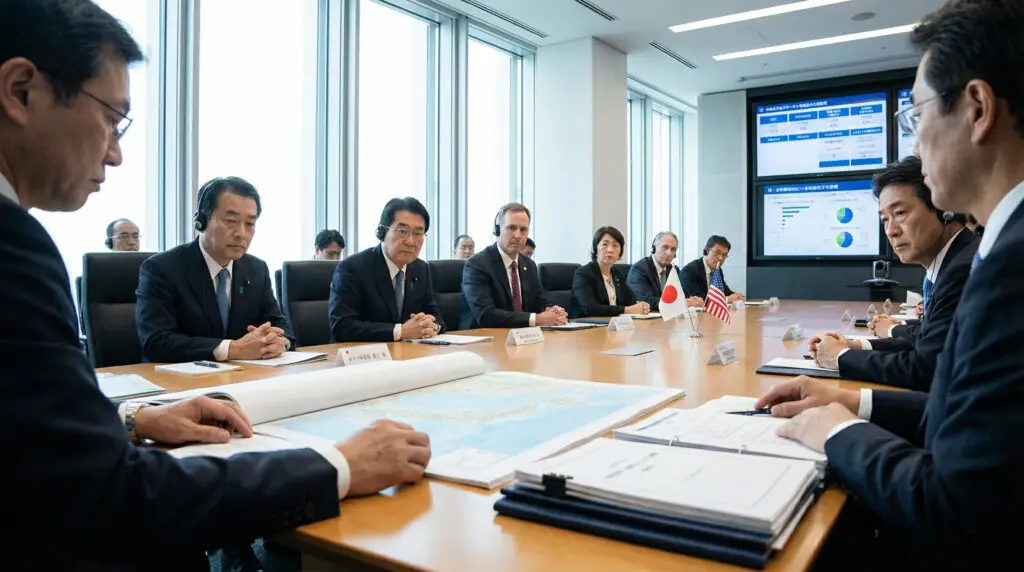The integration of blockchain and artificial intelligence (AI) technologies is set to fundamentally redefine global industries over the next two decades, according to a newly released report by leading crypto exchange OKX and research firm Blockworks. This powerful fusion, termed the crypto-AI convergence, is giving rise to intelligent, decentralized ecosystems with the potential to transform critical sectors such as finance, technology, commerce, and entertainment. The report envisions a future where AI agents seamlessly operate and participate on blockchain networks, executing transactions, interacting with smart contracts, and fueling economic activity autonomously.
Crypto’s Role in Next-Gen AI Infrastructure
A key finding of the report is the increasing significance of cryptocurrency in building the next generation of AI infrastructure. Developers are actively leveraging blockchain to decentralize the immense compute power required to train and run complex AI models. Networks like Render, for instance, are providing token-incentivized GPU marketplaces, allowing for distributed and efficient access to computational resources. This decentralized approach not only lowers traditional barriers to entry for AI development but also significantly enhances transparency and privacy within the AI ecosystem.
Blockchain Enhances AI Transparency and Accountability
Blockchain’s inherent characteristics, immutability, auditability, and token-based incentives, are identified as critical tools for addressing long-standing challenges related to data provenance and model accountability in AI. By recording the origin and transformations of data on an immutable ledger, blockchain can provide verifiable proof of data authenticity, which is crucial for ethical AI development. This integration is expected to foster greater trust in AI models by offering transparent audit trails for their training data and decision-making processes, ensuring a higher degree of reliability and trustworthiness.
AI’s Transformative Impact on Blockchain Itself
The report also speculates on how AI is poised to transform blockchain technology itself. From automating complex code generation to enabling intuitive natural language interfaces for smart contract deployment, AI is making blockchain development faster, more accessible, and significantly more scalable. Furthermore, AI models can provide invaluable assistance in indexing on-chain data, making it easier to analyze vast amounts of information, and are capable of identifying bugs within smart contracts, thereby making decentralized applications (dApps) more reliable and user-friendly for a broader audience.
Reshaping Global Industries: A 25-Year Outlook
Titled “The Future of Blockchain Applications: Reshaping Global Industries,” the report delves into how blockchain technology is set to revolutionize major global sectors, including finance, technology, consumer goods, and entertainment, over the next quarter-century. It forecasts substantial growth in blockchain-based innovations, particularly in tokenized real-world assets (RWAs), decentralized applications, and digital payments. The report predicts that RWAs under management could reach a staggering $600 billion by 2030, and that 10% of global GDP may be tokenized as early as 2027, indicating a massive shift in economic paradigms.
Key Sector-Specific Transformations
The report provides detailed insights drawn from interviews with experts at major firms such as Visa, Google, Standard Chartered, Polygon, and Manchester City FC. In Finance, tokenization is gaining traction among institutional players, stablecoins are disrupting cross-border payments, and crypto exchanges are redefining trading infrastructure. In Technology, blockchain is reshaping software and network design, merging with cloud and AI into what could become a multi-trillion-dollar ecosystem. For Consumer Goods, companies like Walmart and LVMH are adopting blockchain for supply chain transparency, digital product passports, and NFT integrations to boost brand loyalty. In Sports and Entertainment, teams and creators are leveraging blockchain for fan tokens, digital collectibles, and innovative revenue-sharing models, alongside the rise of play-to-earn gaming and blockchain-enabled sports betting.
Crypto-AI Adoption in the Philippines
The Philippines is actively engaging with this crypto-AI convergence. Recently, Filipino Web3 leaders urged the nation to accelerate its adoption of artificial intelligence to avoid falling behind in the global technological race. Sovrun CEO Renz Chong emphasized the critical need for nationwide AI and blockchain education, while SparkPoint CEO Ismael Jerusalem noted the entry of serious AI builders with strong capital backing into the space. Furthermore, in June 2025, the Caraga Region launched its first blockchain certification program through the SPARK initiative, providing hands-on learning in blockchain infrastructure, cryptocurrency, and decentralized tools to boost digital inclusion and Web3 literacy in remote areas. Additionally, Filipino Web3 entrepreneur Emmanuel Lorenzo Bonuan developed an AI-powered custom ChatGPT tool, “Legal Counsel for Web3 in the Philippines,” to simplify complex SEC rules for local crypto users, demonstrating practical AI applications in the local context.























